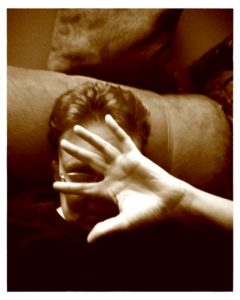
May is ALS Awareness Month. It is also Mental Health Awareness Month.
You might think the two don’t go together, but you would be wrong. An ALS diagnosis is a mental health crisis not only for the person diagnosed, but also for their loved ones. Depression and anxiety, anticipatory grief, helplessness and hopelessness can lead to suicide, and not the physician-assisted kind. It can lead to physical, emotional, mental and financial abuse not only to the patient, but from the patient to their loved ones. In some people with ALS, those behaviors were already there but are now exacerbated. Other people with ALS develop Frontal Temporal Lobe Dementia (FTD), which causes extreme paranoia, hallucinations, a break from reality, loss of memory.
And when the patient has died, their loved ones are left not only with grief, but often complicated grief and post-traumatic stress disorder, both of which are often overlooked and labeled as “grief” but left untreated can lead to extreme anxiety, depression, isolation, self-abuse, drug and alcohol abuse and suicide.
To the medical community: ALS patients and their loved ones need mental health care, not just medication for anxiety and depression.
To the ALS community: Fight for what you need. Yes, medication may be necessary, but therapy and spiritual counseling are also important.
To my fellow widows/widowers: We know this. We continue to fight the dragon every single day, no matter how many years it has been. Talk to someone. Reach out. We have to help each other because no one else can possibly understand – and we hope they never will.